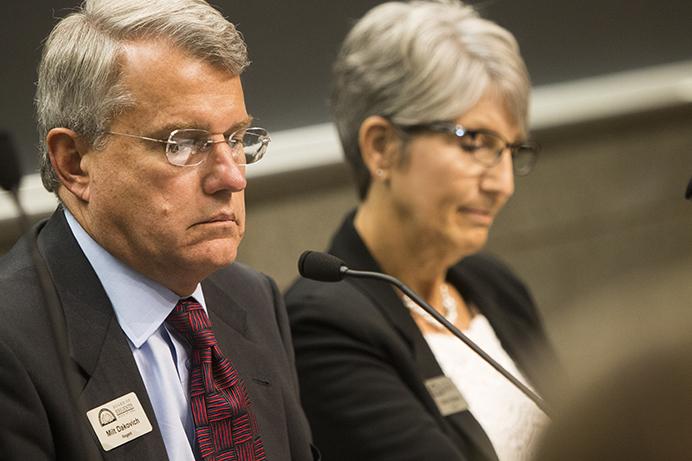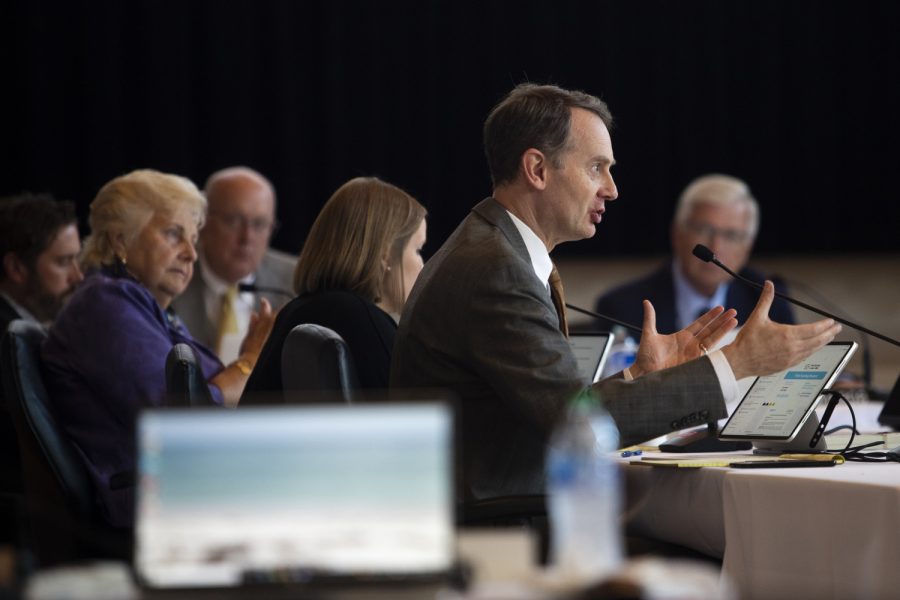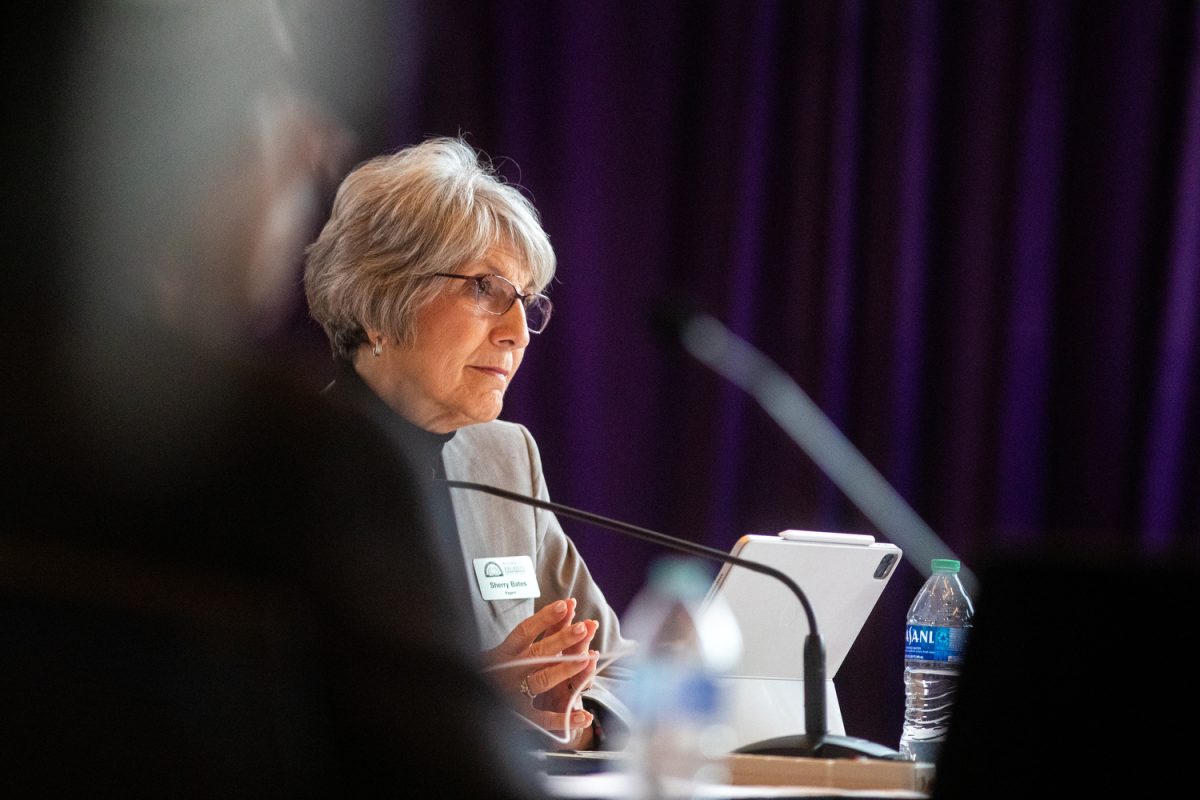The state Board of Regents’ report on its August Tuition Task Force meetings can tell constituents this much: “historically flat state support for public higher education” drives universities’ reliance on tuition.
What the regents plan to do about it? That remains unknown — no recommendations have been made at this time.
Regent Larry McKibben, the chair of the Tuition Task Force, will present the report at the regents’ meeting on the University of Iowa campus on Sept. 7. The report details the current realities of higher-education funding, documents the institutions’ five-year tuition plans, and summarizes the concerns constituents — students, faculty, legislators, and other stakeholders — expressed via email and listening sessions.
RELATED: Regents’ missed Tuition Task Force meeting disappoints many
At the Aug. 14 Tuition Task Force meeting on the UI campus, UI President Bruce Harreld iterated the UI’s proposed plans to move the university’s tuition rates more in line with the median rate of its peer institutions. Resident undergraduate tuition rates are the lowest of its peer group and third lowest for nonresidents, Harreld said.
If implemented, the plan would require tuition rate hikes of 7.08 percent and 2.08 percent each year for the next five years for resident undergraduates and nonresident undergraduates, respectively.
“Just because you’re low does not mean we should automatically offer to raise tuition, as we should be focused on a lot of other aspects of this support mission,” he said. “That being said, it’s quite clear that our ability to compete is based upon our ability to chase and complete our strategic plan, and in order to implement that strategic plan, resources will be required, and tuition must be factored into part of that equation.”
Former UI Student Government President Rachel Zuckerman said in an email to the task force that providing predictability to families and giving them an understanding of the cost of receiving a degree “require the utmost transparency and consistency” from the institutions’ leaders and the regents.
“It is dishonest to say that the University of Iowa has the lowest resident tuition in the Big Ten if our leaders are actively pursuing a strategy that brings tuition to the median of that peer group,” she said. “We must allow students and their families the ability to plan for the full cost of a degree, which requires the utmost transparency and consistency from the institutions and the regents.”
RELATED: UI mulls tuition plans
Regents should have established predictable tuition rates a long time ago, UI student Gustave Stewart said in an email to the task force. Now, he said, it is the state’s responsibility to find more innovative ways to fund higher education.
“Students are a vibrant part of the economy, and it’s important that we treat them as the future leaders that they will become,” he said.
For some, the price to pay for pursuing the dream of earning a degree means cutting corners elsewhere. UI student Noel Mills told the task force in an email that on top of her 17-semester-hour schedule and extracurricular involvement, she works part-time to cover living costs.
“I have cut corners in every area of my life in order to save as much as possible,” she said. “A 7 percent increase in tuition each year seems small to financially stable adults, but to me it means skipping meals, working more hours, taking out more loans, and canceling visits home in order to save on gas.”
RELATED: UI community says, regents, UI officials, legislators need to ramp up advocacy efforts
Mills urged the regents to consider the value of affordable higher education and the role they play in ensuring such education is accessible.












